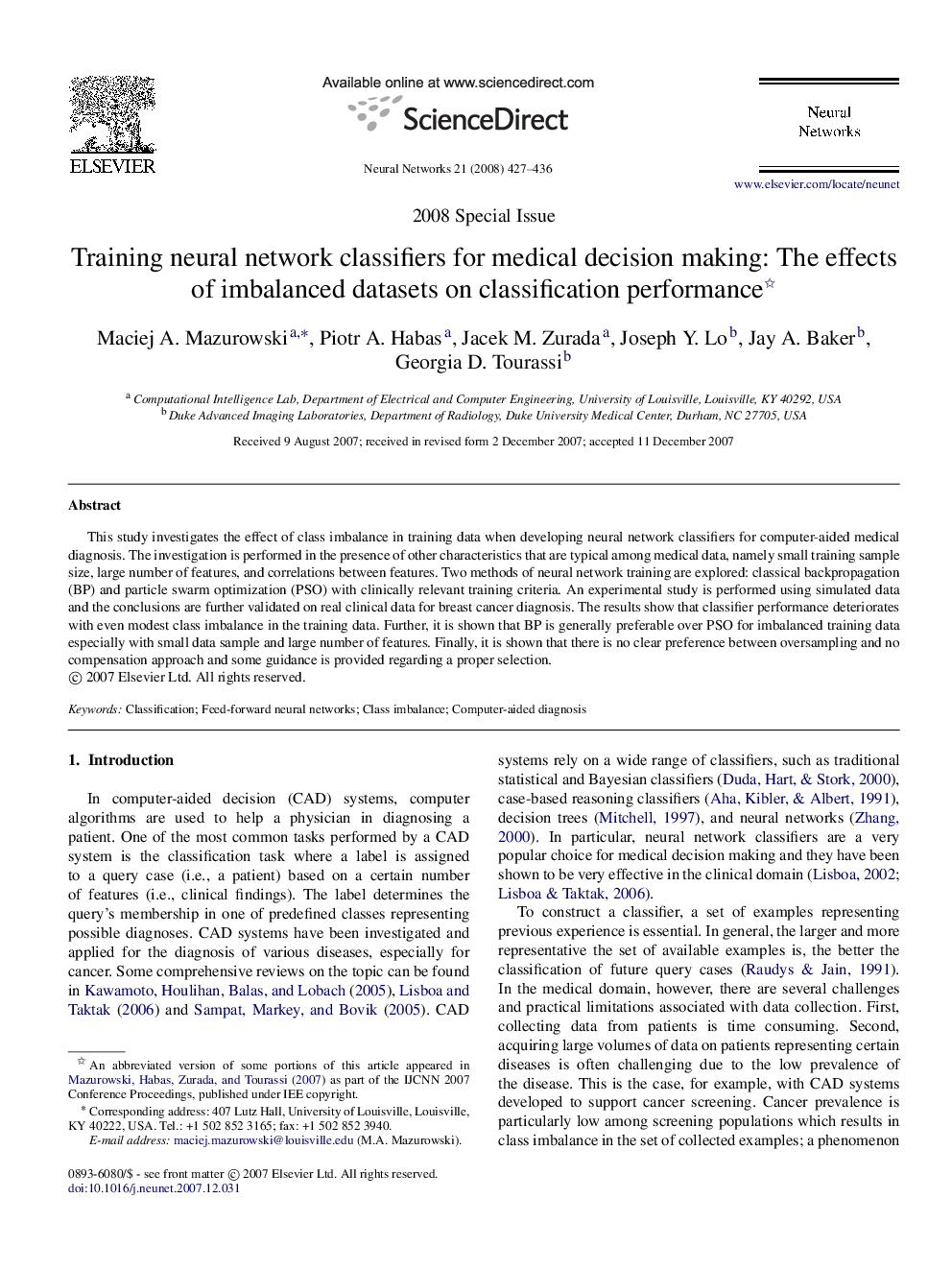| Article ID | Journal | Published Year | Pages | File Type |
|---|---|---|---|---|
| 404685 | Neural Networks | 2008 | 10 Pages |
This study investigates the effect of class imbalance in training data when developing neural network classifiers for computer-aided medical diagnosis. The investigation is performed in the presence of other characteristics that are typical among medical data, namely small training sample size, large number of features, and correlations between features. Two methods of neural network training are explored: classical backpropagation (BP) and particle swarm optimization (PSO) with clinically relevant training criteria. An experimental study is performed using simulated data and the conclusions are further validated on real clinical data for breast cancer diagnosis. The results show that classifier performance deteriorates with even modest class imbalance in the training data. Further, it is shown that BP is generally preferable over PSO for imbalanced training data especially with small data sample and large number of features. Finally, it is shown that there is no clear preference between oversampling and no compensation approach and some guidance is provided regarding a proper selection.
